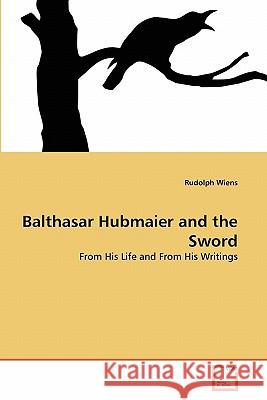Balthasar Hubmaier and the Sword » książka
Balthasar Hubmaier and the Sword
ISBN-13: 9783639365122 / Angielski / Miękka / 2011 / 88 str.
The sixteenth century south German Anabaptist, Balthasar Hubmaier (ca.1480-1528), has had a disputed role in Anabaptist historiography ever since his martyrdom in March, 1528. On the one hand he is known as the most erudite and prolific writer of the early Anabaptists, and on the other he has been separated from the original Zurich Brethren because of his tolerance of Christian participation in the lethal force, the Sword, of government. This book examines in detail Hubmaier's writings concerning the Sword and his probable practice with regard to its encouragement and his use of it. Except for his last essay, On the Sword, we find his view of the Sword similar to the practice of the Zurich Brethren during the formative years 1524-26, when Hubmaier was in deed and in spirit at one with the Brethren of Conrad Grebel. As such the book is of interest to students of 16th C Anabaptist history. Details of his arguments for religious freedom and the story of his final trial will appeal to any reader with interest in human rights history.
The sixteenth century south German Anabaptist, Balthasar Hubmaier (ca.1480-1528), has had a disputed role in Anabaptist historiography ever since his martyrdom in March, 1528. On the one hand he is known as the most erudite and prolific writer of the early Anabaptists, and on the other he has been separated from the original Zurich Brethren because of his tolerance of Christian participation in the lethal force, the Sword, of government. This book examines in detail Hubmaiers writings concerning the Sword and his probable practice with regard to its encouragement and his use of it. Except for his last essay, On the Sword, we find his view of the Sword similar to the practice of the Zurich Brethren during the formative years 1524-26, when Hubmaier was in deed and in spirit at one with the Brethren of Conrad Grebel. As such the book is of interest to students of 16th C Anabaptist history. Details of his arguments for religious freedom and the story of his final trial will appeal to any reader with interest in human rights history.











